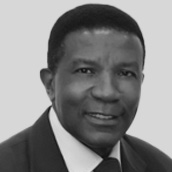
Prof. Trevor Williams is the former Chief Economist at Lloyds Bank Commercial banking, where he led an award-winning research team. He now runs a consultancy specializing in economic analysis encompassing ‘big data’ to better understand a fast-changing global economy and its political context. He is also Co-founder of FXGuard, a foreign exchange risk management business.
The Henley Passport Index (HPI) features significant insights into the economic benefits of visa-free access and the economic prospects of the countries and individuals involved. Let's start by assessing the passport power of countries ranked by their share of global gross domestic product (GDP) versus the HPI, as shown in the firm’s latest research.
The research conducted by Henley & Partners shows a clear correlation between ‘Henley Passport Power’ (HPP) and GDP. This relationship reinforces an intuitive sense that there must be a link between the two elements, as indeed there is. But one issue to address first is that correlation is not the same as and does not amount to causality.
Many things are correlated but not linked because a change in one does not necessarily explain differences in the other. So, for this analysis, we have explored whether there is causality between the HPI and the HPP data (as shown in the scatter diagram above) using a well-known statistical technique called the Granger causality test.

The test assesses whether information about one series can be used to show that it comes before the changes in another. It will show forecasting power if it helps explain differences in the other variable — or if it cannot be proven that it does not. A Granger causality test can be conducted on time series or data linked together by association, like imports and exports or a firm's sales and marketing spend.
Analysis of the research shows predictive power flowing from the HPI and HPP to economic growth. We can therefore dismiss the hypothesis that there is no link between the two factors. Furthermore, the analysis shows a two-way relationship between passport power, economic development, and the HPI and GDP. This result is often the case in relationships that are closely linked.
However, many argue that a Granger test is insufficient to prove causality, and there needs to be some additional logic, theory, or rationale supporting the linkage. In the case of the economic connections that we are exploring, we can draw on a body of historical data and factual evidence to support a causal relationship between the ability to travel, foreign investment in a country, increased trade, and economic growth. Moreover, these links are mutually reinforcing and agglomerative.
In other words, the more they happen, the more they build on the resultant success to create even more success. Therefore, human skills and talent go where there is the ability to work, invest, and travel freely, thereby attracting more individuals wishing to do the same and creating a positive loop.
As an aside, the migration of skills and talent is the underlying reason that some geographic areas within a country outperform other areas in most countries. North versus south, east versus west, coastal versus inland, urban versus rural, and so on. These regional differences, however configured, are tough to shift, despite efforts by governments in many parts of the world to distribute growth more evenly across their respective countries.
The outperformance of one area to another may be because the former is near the coast, a river, or a route through which trade flows, internally and externally. A marvelous university or learning institution may spring up there, or new migrants may bring new skills and investments that build on previous such episodes. More investment may arrive in the form of infrastructure. People from everywhere else in the country might be attracted to that particular location, drawing in the most talented individuals in the country — and so a process of agglomeration begins.
Therefore, traveling to and investing in other countries benefits both the investors and the countries they visit and support with the skills, ideas, work ethic, and the money they bring. And that is a prime example of a two-way flow.
Hundreds of years of economic data have shown that the more open an economy is to ideas, the more it trades with other countries, the more foreign investment there is, the likelier it is to be fast-growing and prosperous. Of course, the opposite is also true. Countries that cut themselves off from international trade are not as attractive places for investment, people, or fresh ideas and innovation as those that are open, and therefore tend not to be as successful economically.
Let's look at some other exciting insights that can be gleaned from Henley & Partners’ research. China and India are both large economies with roughly the same population and economic position, but since the early 1970s, they have taken different economic paths. China opened its economy to the world, while India did not. This is almost like a live alterative scenario run in the real world.
We can see this distinction clearly in the data: China's share of global manufacturing output is the single highest of any country in the world, surpassing the USA and the EU bloc at around 30% in 2021. India's share is much smaller than this, at 3%.
In the 1970s, they had a similar per capita income and manufacturing share of global output. Now, China's per capita income is roughly four times higher than India's. That is no accident. This marked difference is because of the opening of China’s economy by former Chinese leader Deng Xiaoping and the lack of said openness to international trade and investment by India compared with China’s during this period.
Another country that illustrates this connection is Singapore, a small economy and population, yet one that is very open to international trade, with a highly educated, hugely tech-focused workforce. These attributes are reflected in the city state’s very high economic profile and HPP (see the diagram above). Prosperous countries have a combination of open, dynamic economies and are integrated much more into the world's financial and trading ecosystem than less dynamic ones.
For instance, as successful as China is, it still has a relatively low HPI score (66th-place, with a visa-free or visa-on-arrival access of 80 destinations around the world) compared to Germany’s 3rd-place ranking and 190 destinations, or top-ranking Japan with 193 destinations, the highest in the world. China’s economy is underperforming relative to more open countries with higher HPI scores like Taiwan (Chinese Taipei), Singapore, and South Korea — one can see this by China’s GDP per capita. Notably, prosperous, big economies like Japan and Germany are at or near the top of the HPI and economic league tables with regard to GDP per capita.
Economists Adam Smith and David Ricardo's early pioneering work centuries ago proved the benefits of international trade from specialization, driven by more significant economies of scale and productivity that larger markets bring. The latter mean goods can be produced at lower costs and sold at lower prices, benefitting producers and consumers alike and creating a virtuous growth cycle of lower goods prices that drive higher living standards yet still raise firms’ profits. Productivity is based on adopting best practices from anywhere in the market (whether locally or globally), in people and skills, and in investment in plant and machinery.
The larger the economy, the greater the opportunity it has to grow and expand. Participating in globalization, as measured by openness to imports and exports, explains why some countries are thriving, and others are not.
HPP shows a vital route through which this process is initiated: that of people being able to travel freely to other countries.
Henley & Partners assists international clients in obtaining residence and citizenship under the respective programs. Contact us to arrange an initial private consultation.

Have one of our qualified advisors contact you today.
We use cookies to give you the best possible experience. Click 'Accept all' to proceed as specified, or click 'Allow selection' to choose the types of cookies you will accept. For more information, please visit our Cookie Policy.